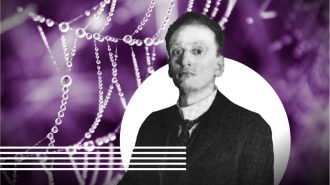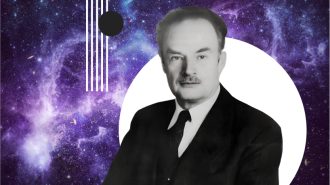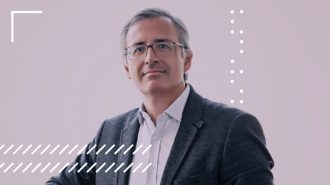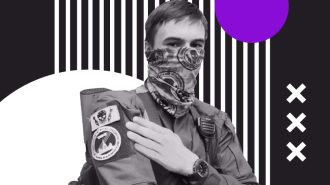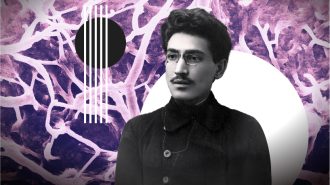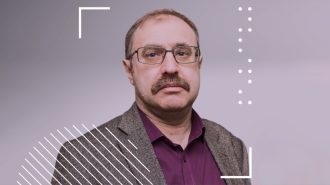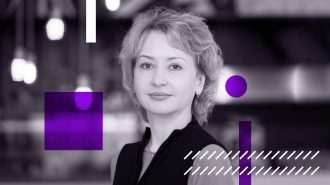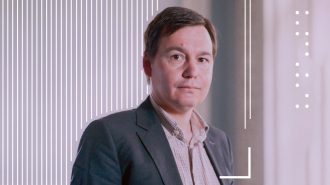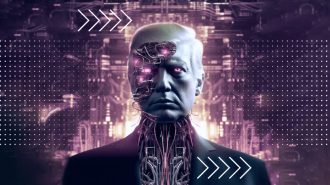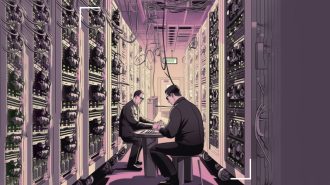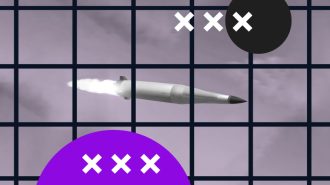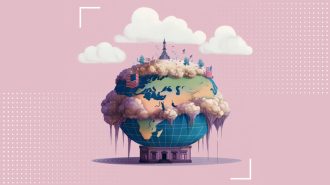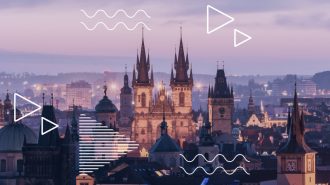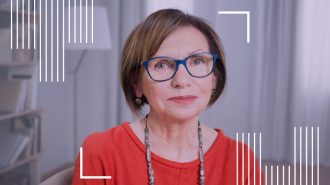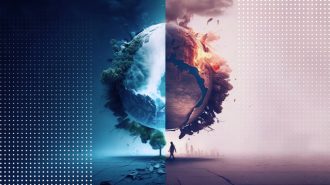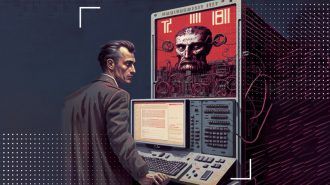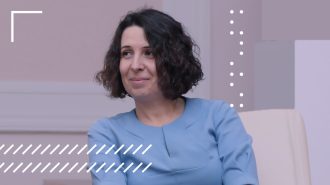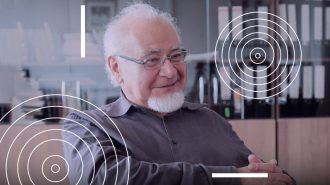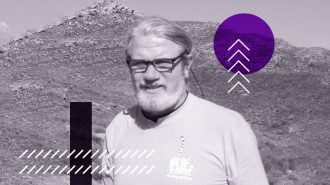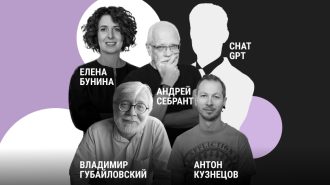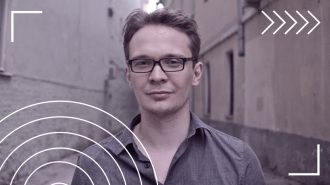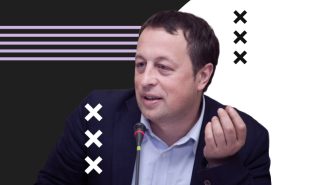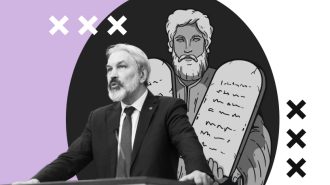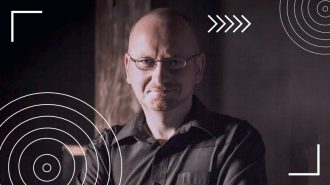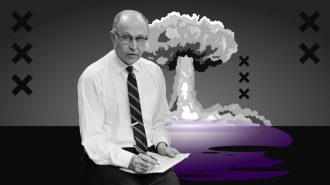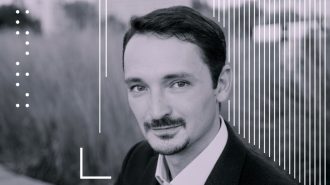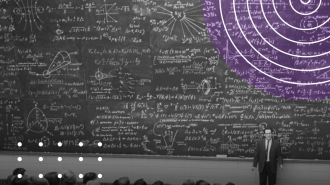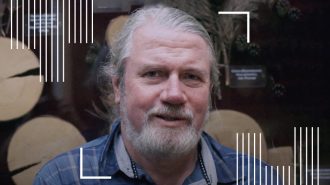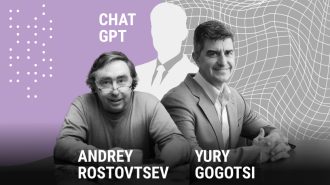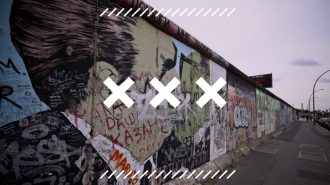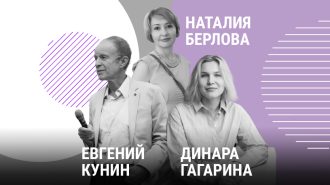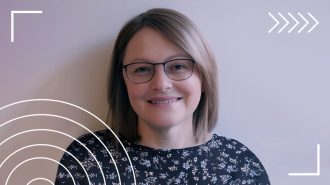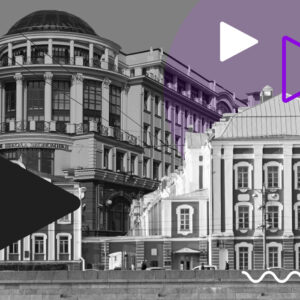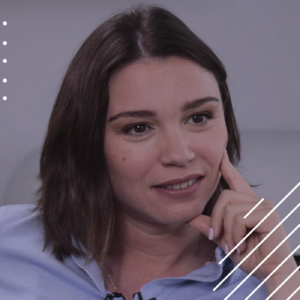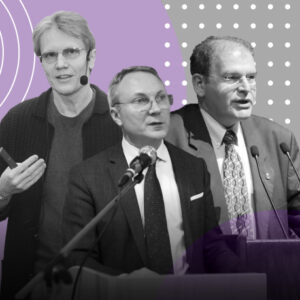Within the project “Creators” supported by Richard Lounsbery Foundation T-invariant together with RASA (Russian-American Science Association) continues to publish a series of biographical essays about people from Russian Empire, who made a significant contribution to world science and technology. Alexander Petrunkevitch was born in the Chernigov Governorate, but most of his life he worked at Yale University. He became especially famous for his research on arachnids.
read
What can sociology tell us about war? For residents of Eastern Europe, war has ceased to be a word from textbooks and news. It invaded their homes and their destiny, it became part of their everyday life. Ariel University researcher Victor Vakhshtain gave an open lecture at the Free University about how war mixes with everyday life.T-invariant suggests reading a short version of the speech scientist.
Within the project "Creators" supported by Richard Lounsbery Foundation T-invariant together with RASA (Russian-American Science Association) continues to publish a series of biographical essays about people from Russian Empire, who made a significant contribution to world science and technology. The essay is dedicated to astronomer Alexander Vysotsky. He had worked at the observatory of the University of Virginia. There he compiled the first catalogue of red dwarfs and experimentally confirmed the rotation of our Galaxy.
What is the extent of ideologization of education in Russia? Why will it be impossible to carry out lustration in the field of education? What awaits researchers in Russia and Ukraine after the war? What are the prospects for economic reforms in Ukraine? T-invariant spoke with Sergei Guriev, Provost of Sciences Po University in Paris.
At Moscow State University, a student organization of Z-activists is raising money for ammunition and equipment for ultranationalists fighting Ukraine, using the official support of the university's law faculty. T-invariant has found out that the founders of the association are the son and daughter of Yuri Trutnev, Deputy Prime Minister of the Russian Federation.
T-invariant, in collaboration with RASA and with support from the Richard Lounsbery Foundation, is launching the "Creators" project. The project will publish a series of essays on immigrants from the Russian Empire who have made significant contributions to global science and technology. The first essay is dedicated to Selman Waksman, Nobel Prize winner and discoverer of streptomycin.
Has Yevgeny Prigozhin’s march on Moscow broken the «negative equilibrium» Russia has been stuck in for the last twenty years? Vladimir Gelman, political scientist, professor at the University of Helsinki, and author of the book on «bad governance» in contemporary Russia, analyzes the consequences of the failed mutiny and possible alternative scenarios.
In 2023, the Georgy Gamow Prize will again be awarded to two scientists. The organizer, the Russian-American Association of Scientists (RASA), announced the start of the collection of nominations. This year, the Gamov Prize committee was chaired by Cambridge (UK) professor Natalia Berloff.
Sociologist of Science Mikhail Sokolov gives a prediction for T-invariant. What kind of historical experiment is being conducted on scientists left behind in Russia, and why a scandal will erupt when GPT-chat starts re-checking textbooks in Russian.
Artificial Intelligence development leaders compare AI to a pandemic and nuclear war. Are they genuinely wrong, or do they benefit?
Sergey Abramov, corresponding member of the Russian Academy of Sciences, has been under house arrest for two months now. He is accused of "financing an extremist organization." Details of the criminal case remain unpublished, but T-Invariant found out that Abramov had previously been investigated under the article of law on "state treason," and the scientist had a security clearance for state secrets.
Three physicists were arrested in so called "Novosibirsk case". It wasn’t the first time. Previously, four scientists were also accused of treason in different years. All of the scientists accused in all these cases participated in the projects of the seventh framework program of the European Union "TransHyBerian" (coordinator — Von Karman Institute of Hydrodynamics, Belgium). However, the interlocutors and sources of T-invariant suggest that the contacts of scientists with China and Iran are only an excuse, not the reason for the arrests.
The military-industrial complex is one of the dirtiest industries in terms of its impact on climate and the environment, even in peacetime. It is especially harmful to the planet during active combat operations. Why was Russia not excluded from the global climate process after February 24, 2022? Climate policy experts Marianna Poberezhskaya and Olga Dobrovidova explain.
A quota set by the Czech government for the reception of Russian and Belarusian dissidents is not even half used during the year. Czech analysts suggest ways to improve the program's efficiency, arguing that the new scholars and journalists are valuable to the country and will help restore democracy after Eastern European dictatorships.
Irina Savelieva, former director and one of the founders of the A.V. Poletaev Institute for Humanitarian History and Theory Research at the National Research University Higher School of Economics, talks about the rise, heyday and end of the famous institute, the impact factor, the «5-100» program and the academic kitchen of the Higher School of Economics.
The past year brought a series of weather anomalies: extreme heat and drought, high precipitation and flooding. This spring began with a heat wave in Spain. We asked climate experts Alexander Chernokulsky and Olga Dobrovidova about weather anomalies and asked them to assess the development of global warming as well as how Russia's position on international cooperation on a variety of climate-related issues affects the global environmental agenda.
Despite its reputation as a scientific and technological superpower, the Soviet Union missed every phase of the 20th century’s information technology revolution. The first episode was a ten-year delay in the conceptual cybernetic revolution. It did not prevent the creation of the first Soviet computers, but led to a lag in subsequent stages.
«I will not go back: I cannot work in a country that is at war with its neighbors,» Yelena Bunina, CEO of Russia's Yandex, wrote to colleagues in early March 2022 and did not return to Russia from vacation. Today, Elena Bunina, a professor at Bar Ilan University talks about the losses and gains of the past year.
Philologist Boris Gasparov, professor at Columbia University in New York spoke in an interview with T-invariant about his new book, the impossibility of doing Russian cultural history today, and why the current emigration of intellectuals is more like the German emigration of the 1930s than the «philosophical steamer.»
Why is it important for global science to maintain ties with the scientific community in Russia? Arguments of
Associate Professor at the University of Johannesburg Aleksei Oskolski.
The head of Tesla and SpaceX Ilon Musk, Apple co-founder Steve Wozniak and more than a thousand experts signed an open letter calling for a halt in the development of a «giant artificial intelligence.» The text of the letter was published by Future of Life Institute. T-Invariant asked experts and AI to comment on this open letter.
The Prosecutor General's Office of the Russian Federation announced that the Free University had been given the status of an undesirable organization. «Our censors and persecutors are a little too late,» believes Kirill Martynov, co-founder of the Free University. He even sees some pluses in the new status.
The Board of Directors of RASA (Russian American Science Association) expresses full and unconditional support to a valued member of our association Professor Konstantin Sonin of the University of Chicago, in connection with a recent reports that a criminal case has been opened against him in Russia on suspicion of publicly disseminating of allegedly «false information about the use of the Russian Armed Forces».
Scientists were shocked by a talk at a theological conference by Alexander Kudryavtsev, director of the Institute of General Genetics, in which he actually renounced the science he was supposed to be engaged in. «I will give my vision of the world,» the speaker begins and utters a manifesto of religious fundamentalism that leads to militarism.
Why does it make no sense to stop training ChatGPT and other artificial intelligence models? Denis Tulinov, author of the telegram channel «Vagus nerve», discusses in his column for T-invariant.
The coming down of the Iron Curtain makes it more difficult to understand what is happening in Russia, and there is a growing need for specialists in Russian studies in Europe. Historian Marek Příhoda spoke about the new Russian-language Master's program at Charles University and the specifics of the Czech vision of Russia.
His ideal was a quiet university job, but life made him a "merchant of death." Georgy Kistyakowsky's name does not appear in a history textbook. But it was his knowledge that helped turn the tide of World War II and influenced the policies of one of the two superpowers. Though it wasn't even his homeland.
What happens to Russian Studies in the general field of social sciences and humanities after the start of the war?
What is the measure of responsibility of social scientists for what happened? T-invariant spoke with Victor Vakhshtayn, professor at the Department of Social Sciences at the Moscow School of Social and Economic Sciences (Shaninka).
What won't allow to build in isolation a mathematics comparable in power and diversity with the Soviet one? The intellectual generation gap, giving rise to gerontocracy, marginalization, and the spread of pseudoscientific schools, suggests Corresponding Member of the Russian Academy of Sciences Ilya Shkredov.
Artificial Intelligence is preparing to supplant copyright. It radically changes the notion of «copy» underlying copyright protection. In fact, the «copy» is hardly distinguishable from the new «original». Will the copyright, born in the age of steam engines, withstand?
Breaking international ties with Russian scientists will lead to results directly opposite to those hoped for by Ukrainian scientists who called for such a boycott in their open letter, says Alexei Oskolski, a member of the Coordinating Council of T-invariant.
An international boycott of scientists for their government's war? Even anti-war-minded people are divided over such measures. Many do not risk speaking out about it. So in addition to the scientists' answers, we asked questions to the artificial intelligence. At least it doesn't have emotions to suppress.
Ukrainian scientists have appealed to the international community to boycott their Russian colleagues. However, such a boycott conflicts with a number of important legal and ethical principles, and in practical terms may do more harm than good in countering Russian aggression.
Despite the energy crisis, the European Union is not abandoning its Green Deal and is increasing efforts to develop environmentally friendly, cheap and non-dependent on Russian hydrocarbons energy. Russia's foreign policy has played a significant role in this process.
Survey (Issue 2): How has the war affected Russian science and scientists? Although global science did not affected much, the war had a great impact on scientists themselves. They try to help their colleagues from Ukraine and Russia while remaining intransigent to the aggressor. Combining both is not always easy.
Peacetime sociology cannot yet explain how a full-scale war became possible in twenty-first-century Europe. Sociologist Svetlana Stephenson discusses the reasons for the failure of democratic transition in Russia and the emergence of an aggressive militaristic state.
How Russian mathematics lost to the war. Is there any chance, in the conditions of external isolation, to preserve a living system of mathematical knowledge in Russia through international solidarity, personal connections, and secret online teaching?
Charles University opens a Master's program in Russian. Why it was in demand amidst the war, explains Zhanna Nemtsova, co-director of the Boris Nemtsov Academic Center at the Faculty of Arts of Charles University.
T-invariant survey: how the war affected Russian science and scientists themselves. Historical rhymes with the scientific emigration of the 1920s, relations with Ukrainian colleagues, isolation of Russian universities, faint hopes and gloomy predictions.


